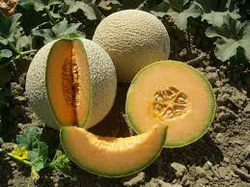
It might be hard to believe, but it wasn’t until my dad marched my sister, still gnawing her rind of melon, out to the porch where I was eating, that I had any notion of my wrongdoing. My father is a tall, physically imposing, but quiet man and his words that day, as much as the stricken look on his face, stay with me.
“How could you? How could you treat your sister like this? What were you thinking?”
Nothing. Beyond a mild annoyance at her existence, I had not been thinking of my sister at all. I had not been thinking of her hunger or her feelings or the fact that there was plenty of melon to share. I had acted out of blind self-interest, yes, but not out of conscious ill-intent, and my instinct when confronted, now, was to object, to deny, to get angry; an instinct made stronger by a wave of shame I had not felt until that moment. Dad made me apologize and share my melon — there was plenty to share. But I did so grudgingly, ragefully, and then ignored my sister for the rest of the day, punishing her for my shame.
It wasn’t until that night, listening to my sister’s raspy asthmatic breathing on the bottom bunk, that my conscience began to catch up to me. I climbed down to stare at her, three years old, a pain in the butt, but not so bad as sisters go, and I began to cry. I felt a deep sadness and then a shocking wave of rage — at myself, at my sister, I really can’t say. Then, on the heels of rage, a cold and terrible remorse that forced me, finally, to recognize what I had done, and to be truly sorry.
Now, I’ve done many worse things in my life, but this, my first memory of remorse, remains sharp in my moral imagination. Since then, I’ve wondered: If dad had not brought the injustice of my act to my attention, would I have recognized it? I want to say yes, but I don’t think so. I considered myself a “good girl.” I had become pretty invested in that title, actually — so invested I didn’t question it. I needed dad to catch me out, to expose my greed and disregard for what it was. I did not grow or even pick that melon. I was merely big enough to take and then hoard the riches within — to hoard them from my sister. We were both poorer for it — poor in spirit on one hand, and in nourishment on the other.
I’m not going to pretend I was an angel to her from there on out (you can ask her), but I did become more conscious than was comfortable of my motivations, more skeptical of my goodness. Maybe it was not my sister’s pain (she seemed grateful enough for that rind, after all), so much as my shame that made me want to be better. I accept that. If the desire to avoid shame is what makes me into my better self — makes me a better neighbor, sister, mother, teacher — I accept that. Shame has its uses. So does remorse, though I admit I had spent most of that day avoiding both.
I’m prepared to believe that over the history of this country, many white Americans have behaved to our brothers and sisters of color like eight-year-old me: that is, without conscious ill-intent. When confronted with our blind self-interest, our thoughtlessness, our racism, our greed and its consequences, what do we do? What have we done over time? When someone finally stands before us in grief and love and says: “How could you? Look at what you’ve done. Look at what you’re doing,” many of us regress like children into defensiveness. Or we respond with rage and denial and misplaced righteousness. We prefer to think of ourselves as “good” after all. Good people. Good Christians, maybe.
But Our Father, who loves us no less than our sisters and brothers, knows better. Our sisters and brothers know better. We know better.
White America is not an eight-year-old child. It takes deliberate ignorance, now, to ignore the inequalities perpetuated by systemic racism; maintaining this ignorance takes just as much effort as knowing does, and it harms us all in body and spirit. Avoiding shame, and the strong medicine of remorse, harms us all. Our fear of punishment is largely misplaced. No one is forcing upon white Americans the rind of the melon we saw fit to give our sister. No one is suggesting slavery, either, or disenfranchisement, or mass incarceration, which itself is a miracle and an undeserved mercy.
We are being asked to recognize and to acknowledge our behavior. We are being asked to apologize, to endure the necessary shame and remorse, and yes, to share an equal portion of a wealth we did not earn and have no right to hoard. We are being asked to love and honor our brothers and sisters as ourselves, as they deserve. Amen.
First publish in Arc Digital; republished in The Common Politic
 RSS Feed
RSS Feed
